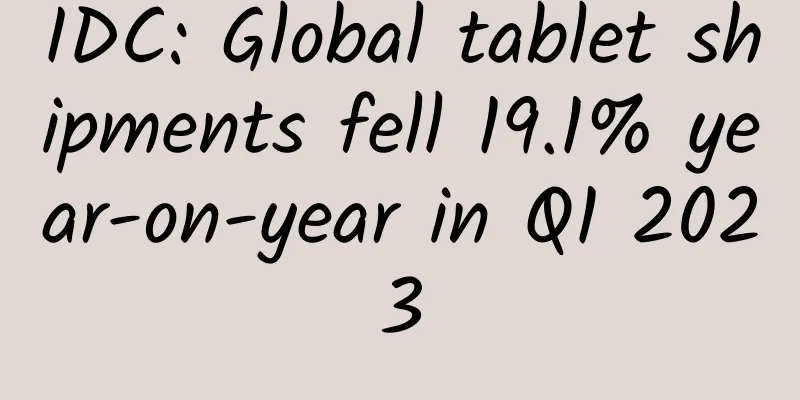Gynecological inflammation How to treat chronic pelvic inflammatory disease

|
Chronic pelvic inflammatory disease is a type of gynecological inflammation and a very common disease among women. The condition of chronic pelvic inflammatory disease is also relatively stubborn and can lead to menstrual disorders, increased leucorrhea, low back pain, abdominal pain, and severe cases can even lead to infertility. These symptoms bring a lot of troubles to patients. There are many ways to treat chronic pelvic inflammatory disease. Which method is the most effective for chronic pelvic inflammatory disease? The editor will give you the answer in the following article. Pelvic inflammatory disease can be divided into acute and chronic types. Acute pelvic inflammatory disease (symptoms) include fever, chills, irritability, dry mouth, thirst, lower abdominal distension and pain that refuses to be pressed, back pain, bloating, excessive vaginal discharge, early menstruation, frequent and urgent urination, short and red urine, or painful urination, a feeling of residual urine, etc. The tongue coating is yellow and greasy, and the pulse is slippery, rapid and strong. [Governing Law] (1) For patients with severe heat, use Huanglian Jiedu Decoction: 10g of Scutellaria baicalensis, 12g of Coptis chinensis, 12g of Phellodendron amurense, and 10g of Gardenia jasminoides. (2) For patients with severe damp-heat in the liver and gallbladder, use Longdan Xiegan Decoction: 10g of Gentiana scabra, 10g of Raw Gardenia jasminoides, 8g of Scutellaria baicalensis, 15g of Raw Rehmannia glutinosa, 12g of Bupleurum chinense, 8g of Plantago seed, 8g of Akebia trifoliata, 12g of Alisma orientalis, 6g of Angelica sinensis, and 3g of Licorice root. (3) For patients with severe bladder damp-heat, use Chaiqin Decoction: 12g of Bupleurum, 10g of Scutellaria, 12g of Polyporus, 10g of Poria, 12g of Alisma, 10g of Talc, and 8g of Pinellia. In addition to the above treatments, when heat is severe, use Scutellaria baicalensis, Coptis chinensis, Phellodendron chinense, White bark of Chinese toona root, Taraxacum mongolicum, Viola yedoensis, Patrinia scabra, Lonicera japonica, etc.; when dampness is severe, use Atractylodes lancea, Magnolia officinalis, Poria cocos, Polyporus umbellatus, Alisma orientalis, Plantago seed, etc.; if the pain is severe, add Corydalis yanhusuo, Toosendan fruit, frankincense, myrrh, Linderae scutellariae, etc. After delivery, you can add motherwort, pollen, and hawthorn charcoal. [Commonly used prescriptions] Scutellaria baicalensis, Phellodendron chinense, Gardenia jasminoides, Patrinia chinensis, Bupleurum chinense, Poria cocos, Toosendan fruit, and Corydalis yanhusuo. Chronic pelvic inflammatory disease [Main symptoms] Pain in the lower abdomen and lumbosacral area, preference for heat and pressure, excessive leucorrhea, menstrual disorders, excessive premature menstruation, dysmenorrhea, and anal swelling. If both sides of the fallopian tubes are blocked, secondary infertility may occur. [Governing Law] (1) To promote blood circulation and remove blood stasis and qi stagnation, use Amber Powder with modifications: 10 grams of Angelica sinensis, 8 grams of Chuanxiong, 12 grams of Red Peony Root, 10 grams of Pollen Pu, 8 grams of Hawthorn Charcoal, 9 grams of Achyranthes bidentata, 8 grams of Linderae scabra, 8 grams of Cinnamon Bark, and 12 grams of Achyranthes bidentata. (2) For blood stasis and cold stagnation, use Guizhi Fuling Pills with modifications: 10 grams of cinnamon twig, 12 grams of Fuling, 10 grams of peach kernel, 12 grams of red peony root, 10 grams of angelica root, and 8 grams of fennel. (3) For blood stasis, use Huo Luo Xie Ling Dan with modifications: 12g of Bupleurum, 10g of Angelica, 15g of Salvia, 10g of Frankincense, 10g of Myrrh, 10g of Pollen, and 8g of Cinnamon. (4) In case of liver qi disharmony, take Xiangfu Pills with modifications: 12g of Bupleurum, 10g of Angelica, 10g of Red Peony Root, 10g of Chuanxiong, 8g of Aucklandia, 8g of Cyperus, and 8g of Toosendan. Commonly used prescriptions: 10 grams of Angelica sinensis, 8 grams of Chuanduan, 8 grams of Hawthorn charcoal, 10 grams of raw Puhuang, 12 grams of Cyperus rotundus, 8 grams of Sophora flavescens, 7 shells of red ochre, 6 grams of cinnamon bark, 10 grams of Poria cocos, and 8 grams of Corydalis yanhusuo. External medication: (1) 50g each of stalactites, frankincense, myrrh, and cuttlefish bone, 15g each of realgar and catechu, and 3g of mint. Grind the above into fine powder and apply to the posterior fornix. (2) Uterine pill: Place into the posterior fornix twice a week. The above are the methods for treating gynecological inflammation and chronic pelvic inflammatory disease. I hope these prescriptions can help you. In fact, the prevention of gynecological inflammation is also very important in daily life. You must develop good living habits and pay attention to your personal hygiene, etc., so as to effectively prevent the occurrence of gynecological inflammation. |
<<: How to prevent pelvic floor muscle relaxation
>>: Treatment of cervical erosion caused by gynecological inflammation
Recommend
What is the cure for dysmenorrhea?
For some women in our lives, the menstrual period...
How to read the fetal monitoring report
Fetal monitoring is a very important thing during...
Can I eat donkey-hide gelatin during menstruation?
Maybe many people will think that this kind of no...
What are the taboos during menstruation?
Every woman will have her period once a month aft...
What are the symptoms of inability to get pregnant?
Pregnancy is a woman’s right, but the increasing ...
What is the nutritional value of okra?
Okra is a magical all-purpose vegetable. The tend...
Why does it itch during ovulation?
Generally speaking, women will not feel itchy in ...
What to check for during the 36th week of pregnancy
Nowadays, with the improvement of science and tec...
Can habitual abortion be cured?
Habitual miscarriage is very harmful and often le...
What causes women's legs to become weak?
Female friends, if you find that you have no stre...
What is DHA, which can supplement brain nutrition and improve memory, and is called "brain gold"?
Maybe many of you often hear the word DHA, such a...
What causes acne on the vulva?
The vulva is the first reproductive barrier for w...
Early picture of female athlete's foot
Athlete's foot is a very common disease. In f...
Is bread bad when it turns sour? Why is sawdust added to black bread?
Bread is also called artificial fruit, and there ...









